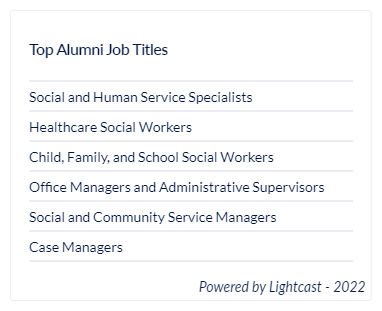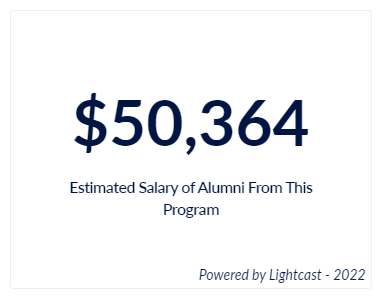Social Work, BSW
The Bachelor of Social Work (BSW) program at Shippensburg University prepares you for a variety of careers in the field as well as further study. Our program is fully accredited by the Council on Social Work Education and helps you develop social work knowledge, skills and values. We also offer a Bachelor of Social Work degree completion program in the Harrisburg area and an MSW program for students who want to continue their studies.
Get more info
What Will I Learn?
The mission of the Shippensburg University BSW program is to provide comprehensive preparation for competent entry-level social work practice and/or graduate study. This program includes:
- A curriculum grounded in the generalist approach
- A special emphasis on the respect for diversity and human rights
- Involvement and leadership in the practice community from the local to the global level
Elective courses may focus on a particular setting or issue in social work practice.
Upon graduating from the program, following steps to register with the State Board of Social Workers, Marriage & Family Therapists, and Licensed Professional Counselors, and passing the accompanying Association of Social Work Boards exam, students can earn the Licensed Bachelor of Social Work credential in PA.

Council on Social Work Education - The Bachelor of Social Work and Master of Social Work programs offered by the Ship’s Social Work and Gerontology Department are fully accredited by the Council on Social Work Education.

Meet Imani Cameron | Social Work
“You’ll stay at Ship because of the connections you can make.”What are the requirements for this degree?
You must complete a minimum of 120 credits to obtain your BSW, first entering the major at the pre-professional status level. The process to move into professional standing begins when you are enrolled in SWK 270 (Social Work Practice with Individuals).
The Bachelor of Social Work degree completion program is designed for students who have completed an associate’s degree or earned at least 48 transferable credits with a minimum 2.40 GPA.
What Types of Careers Could I Get With This Degree?
Employers in the region regularly recruit and hire our graduates because of our program’s excellent reputation. Alumni of our program help others through their careers in these areas and more:
- Child welfare
- Health care
- Programs for older adults
- Behavioral health
- Mental health
- Substance use
- Educational settings
- Business and industry
- Community organizing
- Public policy
- Program development
Many students use their degree as a springboard to graduate school for a Master of Social Work program which can lead to additional career opportunities that include providing clinical mental health services or serving as agency administrators.
What Career Outcomes Do Alumni Have With This Degree?


What Kinds of Experiences Could I Have?
Expect personalized educational experiences, dedicated and knowledgeable faculty, small classes and opportunities for collaboration between peers.
Curriculum in this program:
- Includes role-playing situations that prepare you for real-world experience
- Builds toward an intensive field placement or internship
- Includes electives that allow you to tailor your education to your interests
Outside of the classroom, you can get involved with:
- Nationally-recognized professional organizations
- Departmental clubs like the Social Work Organization to participate in service opportunities, fundraisers, conferences and other events
- Pi Alpha, the National Social Work Honor Society (Alpha Lambda is the Shippensburg chapter)
- Research opportunities
Our department has several unique affiliations that provide great opportunities:
- Shippensburg Community Resource Coalition (SCRC) - This is a community-university partnership social services agency. Ship is the only institution in Pennsylvania's State System of Higher Education that operates a social service agency to provide services to the community and learning opportunities for students.
- Institute for Social Inclusion (INSINC) - INSINC advances and supports activities that promote social inclusion of vulnerable populations such as people with disabilities, people of color, GLBT populations, the elderly, children and youth, women, migrant populations, people in poverty and so on, through research, training, and development of demonstration models. Students benefit from the research and annual conference.

